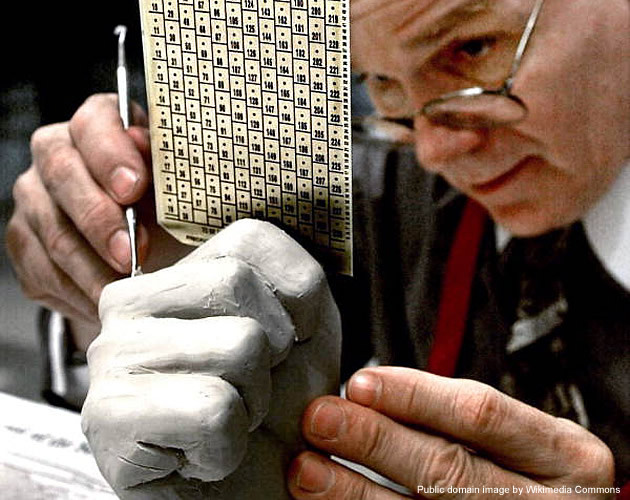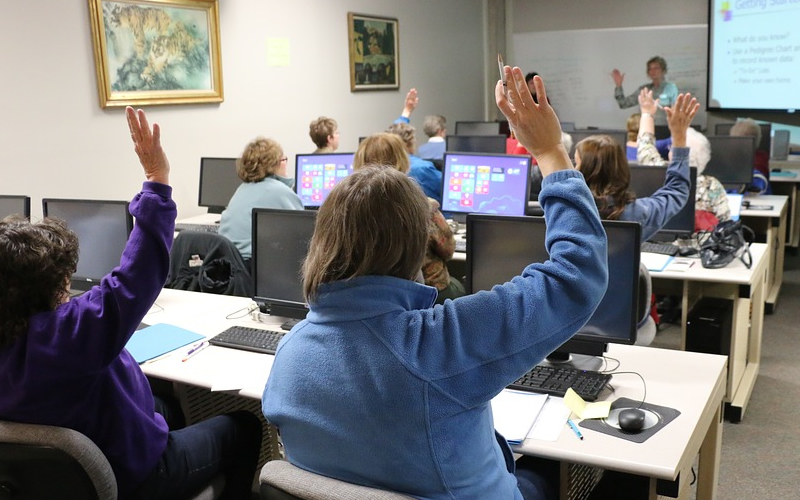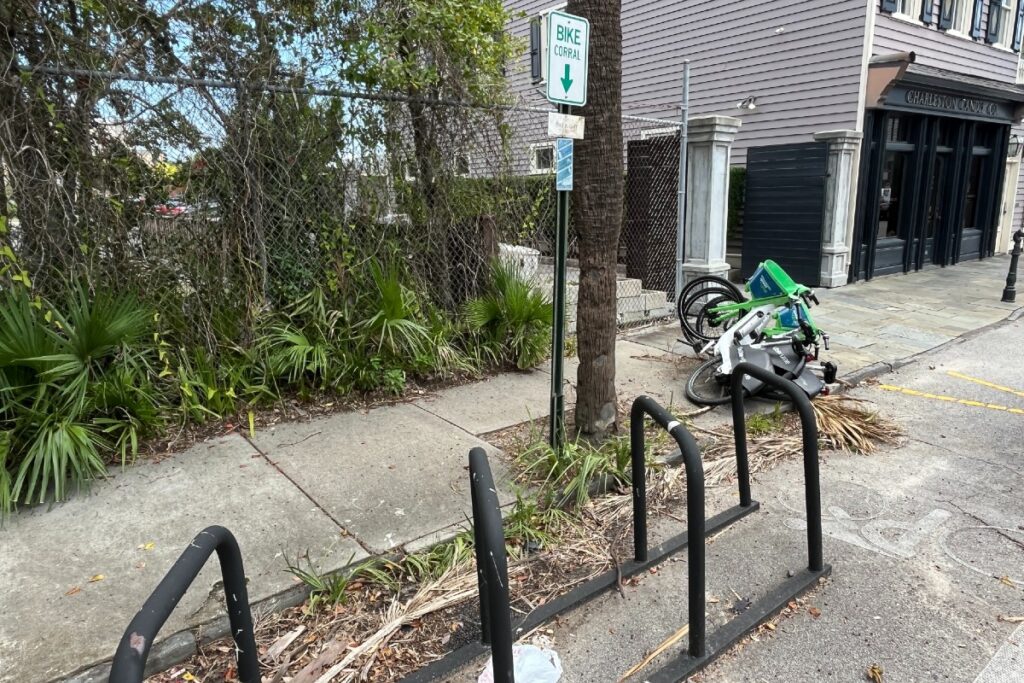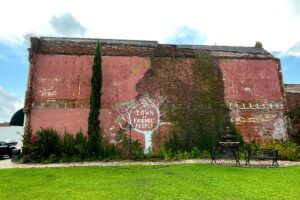STATEHOUSE REPORT | ISSUE 23.34 | Aug. 23, 2024
BIG STORY: S.C. to see new push to legalize online sports betting
MORE NEWS: S.C. Senate panel gets early start on 2025 energy bill
LOWCOUNTRY, Ariail: Oh, the side effects
COMMENTARY, Brack: The time of the year when anything can happen
SPOTLIGHT: The SCEA
ANOTHER VIEW: Scores show how S.C. still fails her students
MYSTERY PHOTO: Horrible parking job
FEEDBACK: Great cartoonist
S.C. to see new push to legalize online sports betting

By Jack O’Toole, Capitol bureau | South Carolinians will see a renewed major push for legalized online sports betting in January when the General Assembly reconvenes, despite two recent legislative failures and a pair of new studies that highlight gambling’s social costs.
The reasons, experts and policymakers say, are simple: money and momentum.
Since the U.S. Supreme Court struck down the federal law prohibiting states from authorizing sports betting in 2017, 38 states have legalized the practice in some form. Last year, states generated more than $2.5 billion in taxes from $11 billion in industry revenue.
And now with North Carolina generating eye-popping revenues just across the border in its first five months of legal online sports gambling, experts like Stephen Shapiro of the University of South Carolina Department of Sport and Entertainment Management think S.C. legislators will feel significant pressure to act.
“The success in terms of the tax revenue generated already in North Carolina will be enticing,” Shapiro said in an Aug.t 19 interview. “I would imagine that we’re going to see more of those types of [sports betting] bills and that there’s a good chance it would be legalized in the next couple years.”
The North Carolina experience

When North Carolina’s new law allowing online sports betting went into effect at noon on March 11, it was expected to generate $64 million in its first year.
“The legalization of sports betting will provide a significant boost to North Carolina’s economy and will allow our thriving sports industry to continue to grow,” Governor Roy Cooper said that day, as he placed a bet on the Carolina Hurricanes to win the Stanley Cup.
So far, Cooper’s prediction appears to have been an understatement, with North Carolinians wagering more than $1 billion in the first 60 days after legalization. By July 1, the state had generated more than $50 million in taxes and fees – almost 80% of the $64 million it expected to collect for the entire year.
“They’ve definitely seen a consistent high level of gambling productivity in the market since March,” USC’s Shapiro said. “And we haven’t even gotten to football season, which is when you see the biggest boost in gambling activity.”
Meanwhile, in South Carolina
Most South Carolinians probably first heard a sustained political argument for legal online sports betting in 2022 when then-Democratic gubernatorial candidate Joe Cunningham made it a major issue.
“Sports betting is happening in South Carolina. It’s just under the table, unregulated, and overseen by bookies. Our state gets nothing,” Cunningham said in 2022. “It’s time to legalize sports betting, bring it to the surface, and use the new tax revenue to cut taxes and invest in our teachers and roads.”
And while Cunningham lost to Republican Gov. Henry McMaster that fall in the ruby-red Palmetto State, two bipartisan bills to legalize online gambling were introduced in the following legislative session.

The first, sponsored by S.C. Rep. Russell Ott, D-Calhoun, was a limited bill aimed at subsidizing the state’s struggling equestrian industry by allowing online gambling on horse races. Ott now is running for state Senate.
“[Equestrians] are getting crushed by other states right now that have gotten with the times, that have passed this type of legislation and have given their constituents and the citizens in their states the freedom to be able to do what so many people are already doing,” Ott was quoted as saying at the time.
In a development that surprised many longtime Statehouse observers, Ott’s bill cleared the S.C. House 56-46 in an April vote before dying without a vote in the Senate as the legislature adjourned for the year in May.
The second bill, introduced by Dorchester County Republican Rep. Chris Murphy and co-sponsored by powerful Ways and Means Committee Chair Bruce Bannister, R-Greenville, was more ambitious. The bill proposed online sports betting on professional and college sports. It was projected to raise at least $20 million a year in new revenues, with 80% going to the state’s General Fund.
“Studies have shown that there is about $2.5 billion annually that’s being wagered online in South Carolina illegally,” Murphy told his colleagues in a March 2023 committee hearing. “The hope of this legislation would be to eradicate that illegal wagering.”
Despite a strong push by proponents and almost $300,000 in lobbying support from major industry players like the Sports Betting Alliance, the legislation died along with the horse-race gambling bill in May.
New research raises expensive questions
As other states continue to bet big on gambling, two new studies raise serious questions about the social costs of putting a sports book in every citizens’ pocket.
![]() The first, a study from the University of California San Diego’s Rady School of Management, used tax data, gambling hotline reports and digital payment records to examine the impact of legalization in 32 states. And while the findings confirmed that online gambling has been a boon to state budgets, they also showed strong evidence of financial distress among poorer residents, some of whom spend 10% or more of their income on gambling.
The first, a study from the University of California San Diego’s Rady School of Management, used tax data, gambling hotline reports and digital payment records to examine the impact of legalization in 32 states. And while the findings confirmed that online gambling has been a boon to state budgets, they also showed strong evidence of financial distress among poorer residents, some of whom spend 10% or more of their income on gambling.
“Our data show that online gambling legalization leads to more irresponsible gambling spending among lower-income consumers than among higher-income gamblers,” said study co-author Kenneth Wilbur in a July 23 release. “These findings emphasize the high financial risk associated with online gambling.”
The second study, published this month by a team of researchers from the University of Southern California and the University of California Los Angeles (UCLA), examined consumer credit records across states as they implemented online gambling. Among the findings:
- In states that legalized online betting, bankruptcies rose between 25% and 30% in the first four years.
- Collections actions on unpaid debts rose 8%.
- Statewide credit scores fell by one full point.
Study co-author Brett Hollenbeck, a marketing professor at UCLA’s Anderson School of Management, told Statehouse Report the study’s results left him more concerned about online gambling than he was at the outset.
“For a small but significant proportion of a state’s residents, they’re going to get into fairly serious financial difficulty once gambling becomes legal,” Hollenbeck said. “My prior belief would have been that the effects were probably very small, but we found larger effects than I was expecting.”
Still, Hollenbeck said he’s relatively agnostic on the underlying policy issue, due to elected officials’ need to balance the competing interests of increased state revenues, individual liberty and potential harms to some.
“It’s important that policy makers are fully informed about the downsides and that’s why we did the research,” Hollenbeck said. “But a lot of people find [online gambling] to be a perfectly enjoyable hobby that’s not harmful to them and the states generate tax revenue that can be put to good use.”
That’s an argument S.C. legislators are likely to be wrestling with during the next session. But at least one prominent South Carolinian won’t be joining them in weighing the pros and cons.
“The governor has always opposed legalized sports betting and campaigned against it during the 2022 gubernatorial election,” McMaster spokesman Brandon Charochak told Statehouse Report earlier this month. “His position remains unchanged.”
- Have a comment? Send to: feedback@statehousereport.com.
S.C. Senate panel gets early start on 2025 energy bill

By Jack O’Toole, Capitol bureau | A special S.C. Senate panel charged with finding a path forward from the wreckage of last session’s failed energy bill convened for the first time August 22 to take sworn testimony from representatives of the state’s three major power utilities.
The story that the utilities told committee members was simple: South Carolina is currently the nation’s fastest-growing state with new residents and industries arriving every day. And with the Palmetto State’s coal-fired plants set for retirement due to federal environmental regulations, the power companies need a “streamlined” regulatory process that allows them to bring new power-generating capacity online quickly.
“Growth is here and more, much more, is coming,” Duke Energy executive Mike Callahan told the committee. “We need a clear and effective energy policy to plan for that growth.”
Of particular concern, they said, is the explosive growth of power-hungry data centers, which Callahan said are expected to represent one-quarter of Duke’s Palmetto State projects in 2028.
“Let’s be frank, some people like [data centers], some do not,” he said. “However, Duke Energy must be agnostic as we have an obligation to serve every customer that comes to our service territory.”
Nevertheless, senators expressed concerns about the request for streamlined oversight, particularly in light of the 2017 “Nukegate” scandal that left S.C. ratepayers on the hook for billions after Palmetto State utilities abandoned a pair of half-built nuclear reactors at the V.C. Summer plant in rural Fairfield County.
“The problem is there are too many people right now who don’t trust,” said Senate Majority Leader Shane Massey, R-Edgefield. “I can’t put that behind me and I don’t think a lot of people can put that behind them.”
The panel is expected to continue meeting through the fall, with an eye toward having the outlines of a bill in place when the S.C. General Assembly reconvenes in January.
Shealy, Code announced as Riley Institute award winners
Outgoing Lexington County Republican Senator Katrina Shealy and municipal Judge Merl Code will receive statewide leadership awards from Furman University’s Riley Institute at a dinner in their honor on Jan.y 14, 2025.
Shealy, one of three GOP “sister senators” who were defeated in their primaries this year after voting against a strict statewide abortion ban, will receive the institute’s Legislative Leadership Award for her “proven record for working collaboratively to drive progress for South Carolinians.” Shealy previously won a national John F. Kennedy Profile in Courage Award along with her fellow sister senators in 2023.
Code, a Greenville attorney and entrepreneur, served as Greenville’s first Black municipal judge and Chamber of Commerce chair. He has also served on the boards of Furman University and BlueCross BlueShield of South Carolina. In 1996, Code received the state’s highest civilian honor, the Order of the Palmetto, from then-Gov. David Beasley.
“Senator Shealy and Judge Code epitomize how leaders work cooperatively and collaboratively to make South Carolina a place where all South Carolinians, regardless of their background, can live and flourish,” institute director Don Gordon said in a statement.
In other recent news

S.C.’s Harrison pumps up state’s DNC delegates. South Carolina native Jaime Harrison channeled his best version of Democratic vice presidential nominee Tim “Coach” Walz in rallying South Carolina delegates about their part in a winning November political campaign. “If this is a team sport, if we have our MVP and Madam Vice President Kamala Harris,” said Harrison, chairman of the Democratic National Committee. “If we have our coach in Tim Walz, any championship team has to have some good role players. That’s where all of you come in.” Read full coverage of the convention from this week by the Charleston City Paper:
S.C. students still struggling in reading, math as racial gaps grow. Fewer than one-third of 8th graders in South Carolina public schools are doing math at grade level, according to statewide test results released Friday by the S.C. Department of Education (SCDE).
S.C. health officials stress importance of vaccine that legislators twice rejected. South Carolina’s public health agency is encouraging parents to protect their children from half a dozen types of cancer with a vaccine that lawmakers spent a decade debating before agreeing to even allow its promotion.
S.C. officials hope to save abandoned, historic buildings. State legislators extended a tax credit meant to refurbish old structures and made more money available for developers
S.C.’s new higher education commissioner pledges stability. Addressing state lawmakers for the first time Aug. 20, the commission’s newly installed president, Jeff Perez, sought to assure members of a House legislative oversight subcommittee that the 37-staffer agency was ready to turn a corner after months of investigations and high turnovers.
CDC ranks S.C. in bottom 10 for life expectancy. Life expectancy in South Carolina in 2022 was lower than in 82% of the U.S., according to the newest data released by the Centers for Disease Control.
Consumer experts warn homeowners to beware of storm chaser scammers. The Better Business Bureau is warning anyone with damage after Tropical Storm Debby to watch for “storm chasers” — scammers that target people needing repairs following severe weather.
Oh, the side effects

Nationally award-winning cartoonist Robert Ariail always has an interesting take. This week, he takes the small print of what’s really being said in the Trump campaign.
What do you think … love it or hate it? Did he go too far, or not far enough? Send your thoughts to feedback@statehousereport.com.
The time of year when anything can happen

By Andy Brack, editor and publisher | About this time every four years in the presidential selection process, it’s important to remember that nothing is over until it’s over. Two or three unexpected things often happen – generally after Labor Day – that send campaigns spinning, often in more ways than one.
 And how they respond sometimes makes a difference in the outcome of the race. Sometimes not.
And how they respond sometimes makes a difference in the outcome of the race. Sometimes not.
These so-called “October surprises” have included the impact of a possible Iranian hostage deal that never came before President Jimmy Carter’s 1980 reelection effort and a drunk driving arrest for then-candidate George W. Bush that was unearthed days before the 2000 election. And no one can forget Donald Trump’s explicit 2005 language about grabbing women that emerged a month before election day in 2016.
This year is no different. Possibilities that could rollick the 2024 presidential campaign in the days ahead range from pure scandal to a foreign policy win or loss that could cause big problems. Somebody might make a big debate mistake. Or Trump, known for rambling and not sticking to a script, could say something so egregious or outrageous that his campaign tanks among the moderate voters he needs to win.
The first surprise dropped early this year.
Just a month ago as President Joe Biden’s campaign sputtered, former GOP President Donald Trump’s victory seemed almost assured. But when Biden put his Democratic Party’s interest and the country before personal ambition by endorsing Vice President Kamala Harris, the race flipped on a dime.
The enthusiasm of her joyful campaigning with a running mate who sounds like a guy you really want to have a beer with has been nothing short of remarkable. The Democratic National Convention that initially looked like it would be almost funereal ended up being an unexpected reminder that Democrats, too, can show over-the-top patriotism and embrace freedom, apple pie and the American way. The Democratic convention almost looked more of a celebration of America than the Republican one weeks before.
All of this has thrown Trump for a loop, as Washington Post analyst Dan Balz observed: “Trump has never experienced anything like the past month. Vice President Kamala Harris, a Black and Indian American woman, has pushed the White alpha male to the sidelines of the national conversation, denying him the spotlight he craves and constantly demands.”
Nevertheless, Harris is now leading in a few battleground polls – not what would have been predicted just a month back. “The Democrats are in the game,” Balz writes, “the former president is in a box, and it’s not clear whether he knows what to do.”
(Pro tip: He’ll figure it out and come out blazing. He is, you should remember, a politician.)
Republicans should worry about the new enthusiasm that is building a 2024 army for the Democrats. Not only could you hear it in speeches by Michelle Obama, Oprah Winfrey, Barack Obama and Bill Clinton, but you can see it in what The New York Times calls “an unprecedented wave of small-dollar donations for Harris,” who nabbed 1.5 million new donors in the last 11 days of July that raised an astonishing $183 million.
But Democrats, some of whom seem to be counting their chickens before they’re hatched, need to remember that about half of Americans still aren’t happy with them. The election will still be close.
Maybe they should worry about possible efforts by Republican election deniers to tip the scales in swing counties around the country. An July investigation by Rolling Stone magazine described in The Bulwark highlighted how “at least 70 pro-Trump election conspiracists [are] currently working as county election officials who have questioned the validity of elections or delayed or refused to certify results.” According to the analysis, 22 of the 70 “already have ‘refused or delayed certification’ in recent past elections.”
Bottom line: As a country, we’ve got a long 10 weeks left. And anything could happen.
- Have a comment? Send to: feedback@statehousereport.com.
The S.C. Education Association
 The public spiritedness of our underwriters allows us to bring Statehouse Report to you at no cost. This week’s spotlighted underwriter is The South Carolina Education Association(The SCEA), the professional association for educators in South Carolina. Educators from pre-K to 12th grade comprise The SCEA. The SCEA is the leading advocate for educational change in South Carolina. Educators in South Carolina look to The SCEA for assistance in every aspect of their professional life. From career planning as a student to retirement assessment as a career teacher, The SCEA offers assistance, guidance, and inspiration for educators.
The public spiritedness of our underwriters allows us to bring Statehouse Report to you at no cost. This week’s spotlighted underwriter is The South Carolina Education Association(The SCEA), the professional association for educators in South Carolina. Educators from pre-K to 12th grade comprise The SCEA. The SCEA is the leading advocate for educational change in South Carolina. Educators in South Carolina look to The SCEA for assistance in every aspect of their professional life. From career planning as a student to retirement assessment as a career teacher, The SCEA offers assistance, guidance, and inspiration for educators.
- Learn more: TheSCEA.org
Scores show how S.C. still fails her students

EDITOR’S NOTE: This commentary first appeared in the Charleston City Paper.
South Carolinians are famously bound together by traditions, some seemingly as old as the earliest English footprints on the banks of the Ashley River at Albemarle Point in Charleston. But as last week’s damning statewide public school test results pointed up, some Palmetto State traditions belong on the ash heap of history – starting with our longstanding and obdurate refusal to educate all of our children.
![]() First, a little background. Every year, South Carolina students in grades 3 through 8 take the standardized SC READY test, which is designed to measure whether they’re reading and doing math like they should for the grade they’re in.. Results are reported by the S.C. Department of Education in four categories: Does Not Meet Expectations, Approaches Expectations (, which is bureaucratese for Does Not Meet Expectations But Give Us A Little Credit), Meets Expectations and Exceeds Expectations.
First, a little background. Every year, South Carolina students in grades 3 through 8 take the standardized SC READY test, which is designed to measure whether they’re reading and doing math like they should for the grade they’re in.. Results are reported by the S.C. Department of Education in four categories: Does Not Meet Expectations, Approaches Expectations (, which is bureaucratese for Does Not Meet Expectations But Give Us A Little Credit), Meets Expectations and Exceeds Expectations.
And how bad were this year’s results? Let us count the ways – starting with the fact that we’re not teaching our kids to, ummm, count.
For starters, as the Charleston City Paper reported this week, fewer than one-third of 8th graders in South Carolina are doing math at grade level and only half meet or exceed expectations in reading. But of course, those are just the top-lines – the averages of all students across all racial, ethnic and income levels.
It’s only when you delve deeper into the numbers – into what education professionals call the disaggregated results – that you begin to see the full dimensions of the never-ending crisis in the inadequate education that South Carolina provides her children.
In the 8th grade, just 13% of Black children are meeting expectations in math, 34% in reading. Unsurprisingly, the news for 8th grade Hispanic kids isn’t much better – 23% are succeeding in math, 40% in reading. And finally, perhaps explaining those two results, only 19% of students in poverty are working at grade level in math, 40% in reading.
Put simply, 70 years after the landmark Brown vs. Board of Education case that ended de jure segregation in South Carolina schools, we still aren’t making a good faith effort to educate all our children. Though, truthfully, with only 43% of White 8th graders doing math at grade level and 66% meeting expectations in reading, it’s clear our state’s chronically underfinanced public education system is failing children from every background and walk of life.
That’s a tradition that South Carolina voters can and must end. So this November, demand to know how every state and local official on your ballot is going to fix our broken education system, and vote like our children’s future depends on it. Because it does.
Horrible parking job

Well, somebody doesn’t know how to play nice. The bike rack is right there! What town is this in? And, for bonus points, tell us the street. Send your name, hometown and guess to: feedback@statehousereport.com.
 Columbia reader Jay Altman was the first to identify last week’s mystery, “Which town?” He noted the town in question was St. George: “With a population of just over 2,500, it has the small town atmosphere of everyone knowing each other.” And Hartsville’s Don Clark noted the community was the “home of friendly, grits-eating people.”
Columbia reader Jay Altman was the first to identify last week’s mystery, “Which town?” He noted the town in question was St. George: “With a population of just over 2,500, it has the small town atmosphere of everyone knowing each other.” And Hartsville’s Don Clark noted the community was the “home of friendly, grits-eating people.”
Others who correctly identified the photo were: Daniel Prohaska and Frank Bouknight, both of Summerville; Bill Segars of Hartsville; Penny Forrester of Tallahassee, Fla.; Steve Willis of Lancaster; Curtis Joyner of Charleston; Will Bradley of Las Vegas, Nevada; Elizabeth Jones of Columbia; George Graf of Palmyra, Va.; Jacie Godfrey of Florence; David Lupo of Mount Pleasant; Allan Peel of San Antonio, Texas; and Pat Keadle of Perry.
- Send us a mystery picture. If you have a photo that you believe will stump readers, send it along (but make sure to tell us what it is because it may stump us too!) Send to: feedback@statehousereport.com and mark it as a photo submission. Thanks.
Great cartoonist
![]() To the editor:
To the editor:
Once again, Robert Ariail hits the nail squarely on the head.
Week after week, his cartoons bring truth to your audience if not the power.
– Robbie Robertson, Beaufort, S.C.
Send us your thoughts
We encourage you to send in your thoughts about policy and politics impacting South Carolina. We’ve gotten some letters in the last few weeks – some positive, others nasty. We print non-defamatory comments, but unless you provide your contact information – name and hometown, plus a phone number used only by us for verification – we can’t publish your thoughts.
- Have a comment? Send your letters or comments to: feedback@statehousereport.com. Make sure to provide your contact details (name, hometown and phone number for verification. Letters are limited to 150 words.
ABOUT STATEHOUSE REPORT
Statehouse Report, founded in 2001 as a weekly legislative forecast that informs readers about what is going to happen in South Carolina politics and policy, is provided to you at no charge every Friday.
- Editor and publisher: Andy Brack, 843.670.3996
- Statehouse bureau chief: Jack O’Toole
Donate today
We’re proud to offer Statehouse Report for free. For more than a dozen years, we’ve been the go-to place for insightful independent policy and political news and views in the Palmetto State. And we love it as much as you do.
But now, we can use your help. If you’ve been thinking of contributing to Statehouse Report over the years, now would be a great time to contribute as we deal with the crisis. In advance, thank you.
More
- Mailing address: Send inquiries by mail to: P.O. Box 21942, Charleston, SC 29413
- Subscriptions are free: Click to subscribe.
- We hope you’ll keep receiving the great news and information from Statehouse Report, but if you need to unsubscribe, go to the bottom of the weekly email issue and follow the instructions.
- Read our sister publication: Charleston City Paper (every Friday in print; Every day online)
- © 2024, Statehouse Report, a publication of City Paper Publishing, LLC. All rights reserved.


